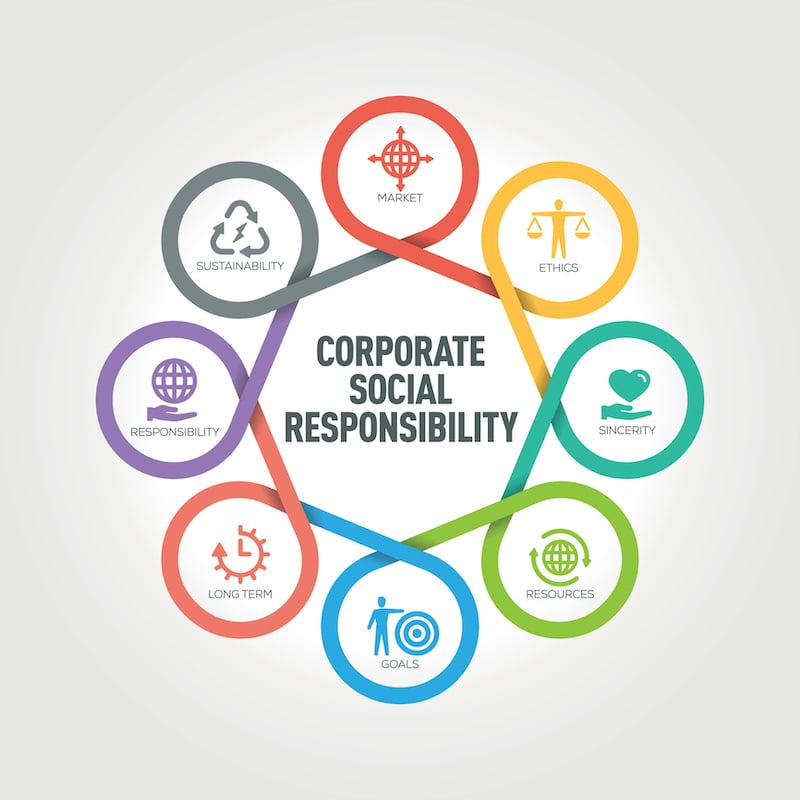The Conscious Consumer and CSI
"A familiar, yet impactful, approach businesses can take to help further their social license to operate is leveraging corporate social investment (CSI) to build awareness of the business’ brand and create overall value drivers."

By Courtenay Webster & Raylene Watson
It is no longer enough for companies to focus on creating profit alone. Investors, regulators, and wider society are demanding that companies take an active role in addressing environmental and social issues alongside financial returns. Financial flows into environmental, social and governance (ESG) funds more than doubled between 2020 and 2021 and, on average, more than one third of consumers are willing to pay more for sustainable products or services.
A concerning factor given the financial flows and increasingly discerning consumer is that, according to The Global ESG Survey, 51% of investors found that the social element of ESG investment strategies is simply a tick-box approach. This is largely because social efforts and impacts can be difficult to measure and analyse. Companies have therefore mainly focused on the environmental element, such as climate change mitigation, as their leading benchmark for investment decisions.
Having said that, the COVID-19 crisis exacerbated and highlighted deep-seated social inequalities, and there is increasing concern of the impacts that climate change can have on vulnerable populations. Due to these concerns and the growing number of socially conscious consumers and investors, social efforts have been evolving from only being in the realm of public relations to being an integral part of corporate strategy and consumer and investment decisions.
A familiar, yet impactful, approach businesses can take to help further their social license to operate is leveraging corporate social investment (CSI) to build awareness of the business’ brand and create overall value drivers.

Not just a nice-to-have
CSI refers to a company’s contributions - beyond its normal business activities – to social development, aiming at improving the lives of disadvantaged communities and individuals. Examples of CSI initiatives include Duracell donating free batteries to families in need after natural disasters, and Colgate-Palmolive giving free dental screenings and oral health education to millions of children around the world.
CSI has embedded itself into business vocabulary, as companies have been increasingly expected to engage with it over the past 20 years. In South Africa, CSI is a mandatory obligation. In terms of the Codes of Good Practice within the Broad-Based Black Economic Empowerment Act of 2007, a company’s CSI contribution should be at least 1% of net profit after taxes (NPAT).
Companies should leverage this CSI spend as a value driver. A well-thought-out and comprehensive CSI programme is not just a nice-to-have; it is a valuable component of business success. Whilst CSI is not undertaken to create direct revenue, there are benefits to the company, such as enhanced brand recognition, building a social license to operate, building future pipelines, and establishing business partnerships.
CSI programmes can also generate comradery, satisfaction, and commitment to the execution of a common strategy amongst employees and other stakeholders.

CSI and your business strategy
For a CSI programme to operate effectively and improve your company’s credibility and brand reputation, it needs to be aligned to your overall business strategy. It is vital that your initiatives are in line with the company ethos, vision, and mission, and that there is a clear link between the community needs and the business’s operational pillars. This ensures that your CSI programme is associated with your core business outputs.
In addition, having a good understanding of the local community needs and being able to respond to these further allows the business to collect much needed market intelligence. This helps the business create new innovative products and new approaches to the market, establishing a competitive advantage.
One of our clients in Kenya produces mattresses. As part of their CSI programme, they donate mattresses to boarding schools. The question asked when reviewing the efficacy of this programme was: how will this donation benefit the business in the medium to long term? The client outlined how good sleep is linked to good education. Students will be more attentive at school and perform better, leading to a more prosperous and productive future when entering the workforce. These children will associate our client’s mattress with a good night’s sleep, and when they are in a position to purchase their own mattress as working adults, they will become a customer themselves. In this way, our client is utilising their CSI spend to build their future customer base.
Once you have your formal CSI strategy with objectives and deliverables in place, you should regularly measure, evaluate, and adjust your CSI programme to ensure your activities continue to correspond with your company’s strategic CSI objectives.
This article originally appeared in the 6th edition of ESG. Enjoy your complimentary copy:
Sources:
Global Sustainability Study 2021 | CNBC | The ESG Global Survey 2021




.svg)











